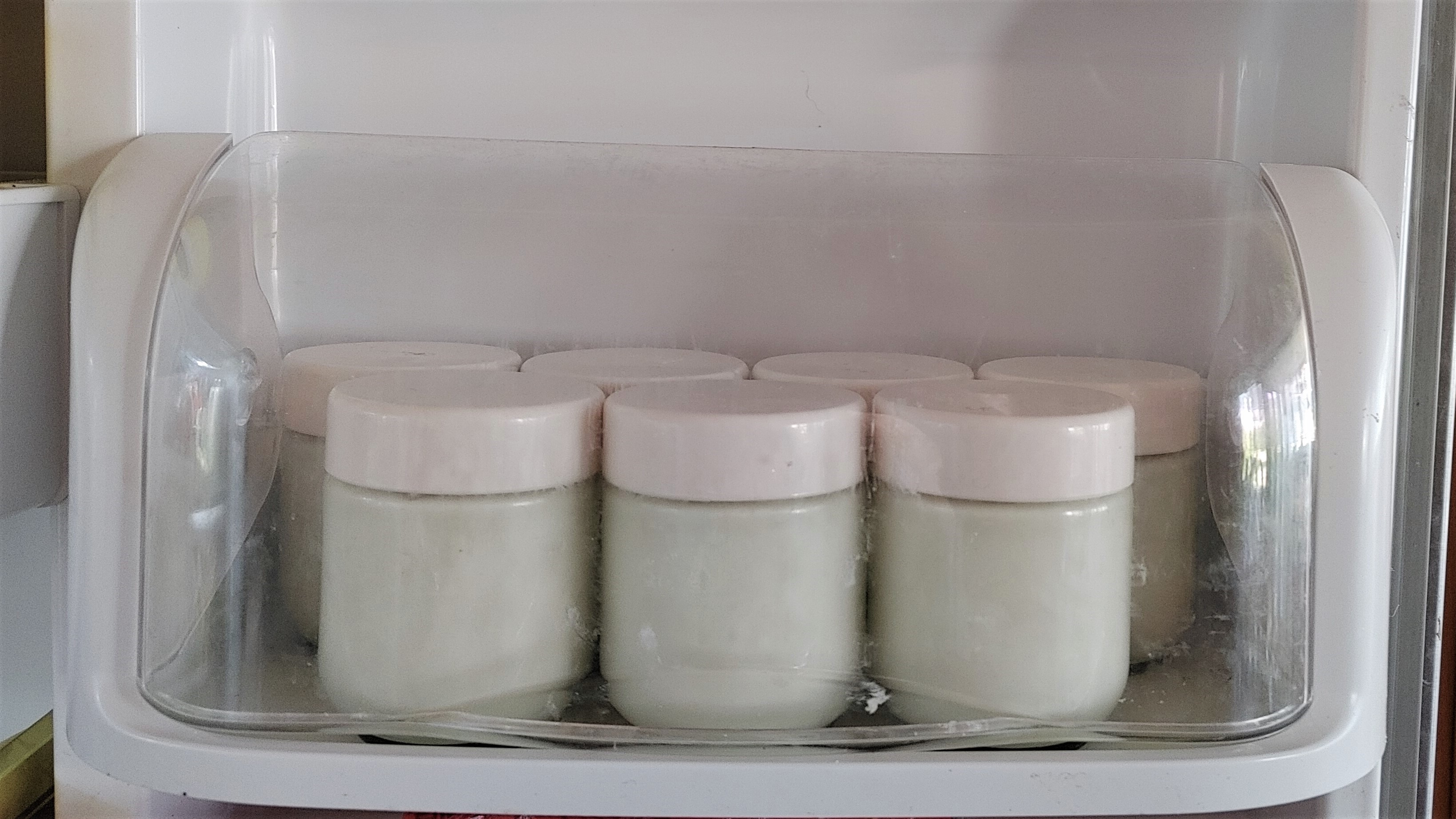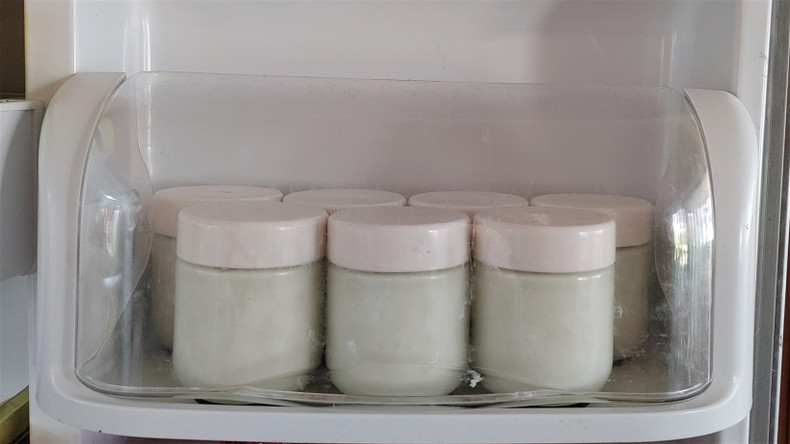
Most ferments can be refrigerated for a while without issues.
It is important to remember though, that your ferments contain live microorganisms that need to be fed periodically in order to survive, and that even in the fridge your ferments keep evolving, albeit much slower.
Key parameters are the type of fermentation and the length of your absence.
If you're planning on going away, these are your guidelines:

Let's break it down.
Fermented dairy
For L. Reuteri Superfood, L. Gasseri Superfood, yogurt made with Yogurt Plus, and kefir made with Easy Kefir:
If you plan on consuming/reculturing the fermented dairy within several weeks, keep it in the fridge. Flavor and texture may change over time. Viability will eventually reduce somewhat too, but if your absence does not exceed several weeks, your ferment should kick back into gear once fresh milk is introduced. You may also need to extend culturing time to let the bacteria catch up by proliferation. Be patient. It may take a few cycles for your ferment to return to its full vigor.
What should you do when you get back?
Check if your ferment is still good (You will find information on how to assess it on each product page). Reculture a small quantity (1 liter/1 quart). If it turns out fine, keep using it. If not, discard, and use a new starter from a sachet to start over.
A word about freezing: Freezing does not kill the bacteria. You can freeze your batch to make desserts such as ice cream with it, though the texture will be grainier/thinner. Please note, however, that we haven't tested batches recultured from a previously-frozen batch.
Kefir Soda
If you're going away even for only several days, we recommend drinking up all your Kefir Soda prior to leaving, to avoid intense pressure build-up in the bottles while you're away.
NEVER FREEZE BOTTLES OF KEFIR SODA.
Fermented vegetables
Kimchi, sauerkraut, and other fermented vegetables can keep in the fridge for several months.
A reminder that you cannot use the brine from an existing jar as a starter to culture a new batch. As opposed to other ferments, the original strains do not all survive the acidity of the more advanced phases of the fermentation. We recommend using a sachet of starter culture for each batch.

